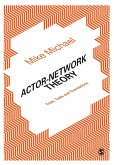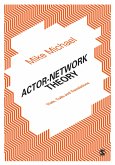The individual that the social sciences take as an object is most often studied in a particular context or from a single dimension. The actor is analysed as a student, worker, consumer, spouse, reader, sportsperson, a voter etc. However, in societies where individuals live often through simultaneously and successively heterogeneous and sometimes contradictory social experiences, each person inevitably carries a plurality of roles, ways of seeing, feeling and acting. The aim of this study is to consider the ways in which this plurality of worlds and experiences are incorporated into the being of each individual and to observe the individual's actions in a variety of settings. In addition to his sociological viewpoint, the author engages with psychology, history, anthropology and philosophy. His reflections lead him to embark on a program of psychological sociology to highlight the complexities of this plural view of the social.
Hinweis: Dieser Artikel kann nur an eine deutsche Lieferadresse ausgeliefert werden.
Hinweis: Dieser Artikel kann nur an eine deutsche Lieferadresse ausgeliefert werden.
"Lahire is disparaging of that 'umpteenth version of a theory ofthe free'; any feeling of freedom or ironic consciousness is simplythe result of the complexity of that determination of whose actualweight individuals can have no practical intuition. But perhapsmore than anything else, this book demonstrates the continuingvalidity and relevance - and for Bourdieuians 'more than ever' - ofjust such theories of freedom."
Journal of the Royal Anthropological Institute
"Congratulations to Bernard Lahire for opening a new window.With the decline of primordial thinking (stressing race, class,gender, and nationhood), heightened by globalization, he suggestshow to see, and conceptualize, the social world in an open,pluralistic mode. He builds on tradition, milieu, and context, butshows how thinking, goals, and a plurality of values combine inwhat we do."
Terry Nichols Clark, University of Chicago
Journal of the Royal Anthropological Institute
"Congratulations to Bernard Lahire for opening a new window.With the decline of primordial thinking (stressing race, class,gender, and nationhood), heightened by globalization, he suggestshow to see, and conceptualize, the social world in an open,pluralistic mode. He builds on tradition, milieu, and context, butshows how thinking, goals, and a plurality of values combine inwhat we do."
Terry Nichols Clark, University of Chicago








